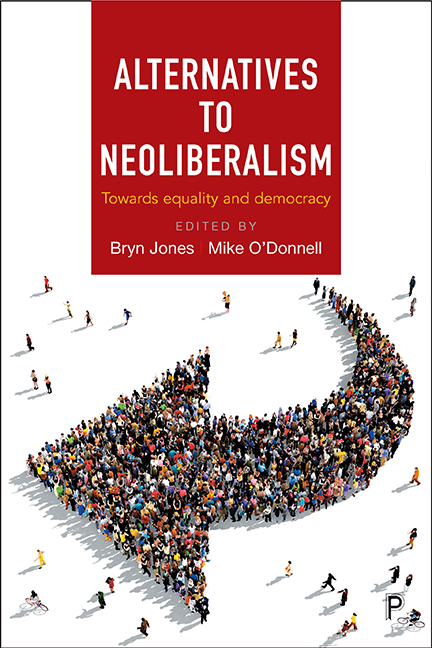Book contents
- Frontmatter
- Dedication
- Contents
- List of figures, tables and boxes
- List of abbreviations
- Notes on contributors
- Acknowledgements
- Foreword
- Editors’ preface
- Introduction: The open-market society and its opponents: an overview
- Part One Alternative paradigms and perspectives
- Part Two Reform within economic and governance restraints: pushing the boundaries
- Part Three Economic and political democracy: restoring the market-civil society balance
- Conclusion: A Brexit from neoliberalism?
- Index
ten - Neoliberalism and social democracy
Published online by Cambridge University Press: 05 April 2022
- Frontmatter
- Dedication
- Contents
- List of figures, tables and boxes
- List of abbreviations
- Notes on contributors
- Acknowledgements
- Foreword
- Editors’ preface
- Introduction: The open-market society and its opponents: an overview
- Part One Alternative paradigms and perspectives
- Part Two Reform within economic and governance restraints: pushing the boundaries
- Part Three Economic and political democracy: restoring the market-civil society balance
- Conclusion: A Brexit from neoliberalism?
- Index
Summary
Social democracy is in danger of the fate once suffered by British liberalism: to represent the core consensus of much of public life, but to be seen as somehow increasingly marginal to it. Neoliberalism enjoys an ideological hegemony, but no government can ever long pursue its true strategy of unregulated market forces. At the other extreme, of the political right, the new xenophobic forces frequently combine their nationalism with advocacy of strong social policy (restricted of course to natives). Social democracy, in contrast to both socialism and neoliberalism, stands for the search for creative compromises between markets and their regulation, rather than accepting grudging concessions with a preference at either pole. And it has a model of citizenship rights that can assert national identity without hostility to immigrants and people from other countries.
There is no need for social democrats to believe that their policy approaches have become outmoded. Indeed, a neoliberal economy, with increasing use of markets, requires moderation through social democratic interventions if it is not to produce a one-dimensional society of a kind that very few people find acceptable ‒ the kind of outcomes which are described in the Introduction and Chapters One, Two and Three of this book. Social democracy's problem is not that its approach has become outmoded, but that its historical voting constituency has shrunk in size – though this is a problem that it shares with traditional conservatives. Even here, however, there are positive possibilities with the growth of a left-of-centre female electorate. Unfortunately historical electoral decline is blinding social democratic parties to both the dangers and the optimistic possibilities of the current situation and, particularly in the United Kingdom, they are instead sinking into internal recriminations between increasingly irrelevant positions of their own left and right.
The democratic deficit of neoliberalism
Neoliberalism became globally dominant because it captured the minds (and feeds the wallets) of political, economic and many other elites, not because it has become an irresistible democratic force. Political parties that have little to offer other than a neoliberal agenda are usually fairly small minority ones ‒ like the Free Democrats in Germany, which has now lost its representation in parliament.
- Type
- Chapter
- Information
- Alternatives to NeoliberalismTowards Equality and Democracy, pp. 195 - 208Publisher: Bristol University PressPrint publication year: 2017

